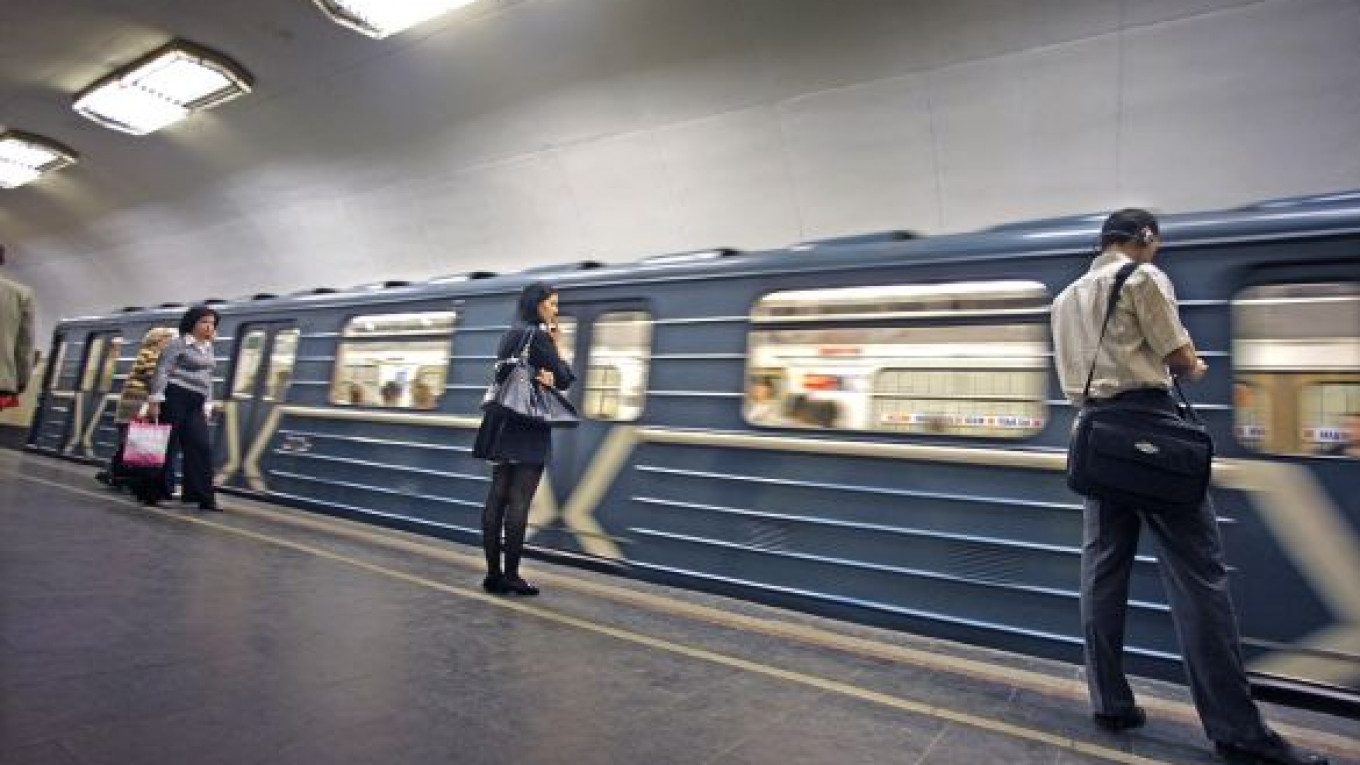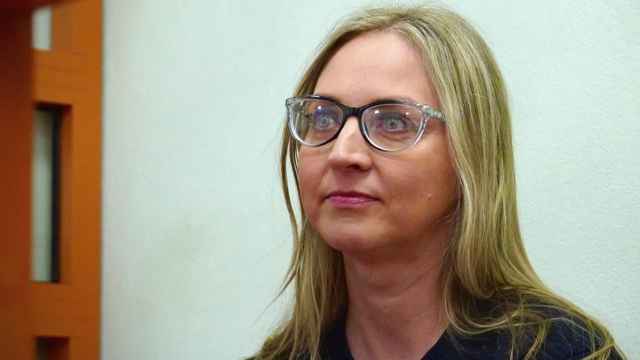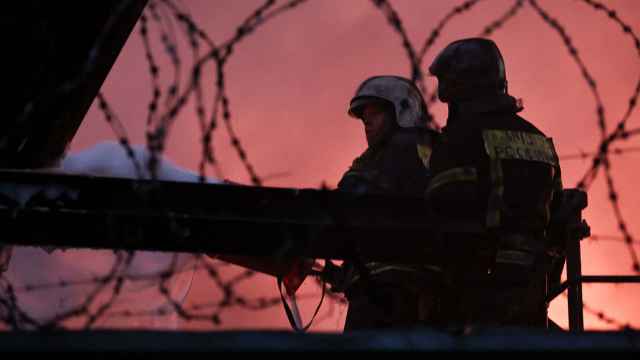Moscow City Hall is announcing a "small" trial tender to supply and service more than two hundred metro cars for the capital's subway in an effort to try out a new contract system for large rolling stock purchases in the future.
The tender for a 30-year contract to supply and further service 248 metro cars valued at 15 billion rubles ($478 million) is to be announced by the end of this month, City Hall said Friday.
The trial tender will be followed by the previously announced contract to supply 2,400 metro cars.
The contract is the first of its kind for the Moscow metro. One of its presumed advantages for the budget is that the payment spreads out over a long period of time, facilitating costly projects such as train purchases. Another novelty is that the supplier not only provides the rolling stock but takes on the responsibility for its maintenance over its whole life cycle.
Previously the metro purchased new cars with its own and state funds, getting a two-year warrantee on the stock, while maintenance was performed by the technical staff of the subway.
"Ninety percent of all train delays are caused by technical problems. We need to change that. The outcome should be better service quality. The supplier will be subject to strict sanctions — fines and a decrease in regular payments — in case the rolling stock is not delivered," said Ivan Besedin, the head of the Moscow metro.
The contract is to be tried out at the Novogireyevo metro depot, where the cars of the Kalininskaya line are serviced. If the contract is successful, another one of this type is to follow.
"After several months of work under this contract we will see if we can continue the practice and apply it to other new and existing lines," Deputy Mayor Maxim Liksutov said.
The other contract, called "the big one" by the authorities, envisages another 2,400 cars — 1,300 intended for new lines and another 1,100 for the replacement of old rolling stock. The total cost of the cars and their maintenance over a 30-year period is valued at 300 billion rubles.
This is one of the biggest DBFM (design, build, finance and maintain) contracts in the transportation industry to be announced not only in Russia but in the world. Lacking any prior experience, the Moscow metro faces some problems, experts say.
The first difficulty is the long term of the contract.
"As far as the Western equivalents [of the contract] are concerned, 12 to 16 year financing is guaranteed by export-import banks, funds and other institutions. This is the period for which they agree to enter these projects," said Albert Yeganyan, managing partner at the Vegas Lex law firm.
Another problem is a lack of facilities to produce so many cars.
"Analysis of suppliers' production programs shows that it is impossible to manufacture the given amount of cars even if the order is placed at two plants because they just do not have the needed capacity," Yeganyan said.
City Hall does not seem to be puzzled by the difficulties. The "big" contract will be divided into lots and several companies may participate.
"Historically, a Russian producer [Metrovagonmash, a subsidiary of Transmashholding] has been the main supplier for the Moscow metro. So Russian producers are welcome to participate in the tender in the first place. But foreign companies may come too, although we do hope that if they do, their cars for the Moscow metro will be produced locally," Liksutov said.
Hitachi, Bombardier, Alstom, Siemens, Hyundai, Skoda and other major international rolling stock producers have already expressed their interest in the upcoming tender, he said.
As for financing, the Bank of Moscow and VTB have already declared their interest in providing loans to the successful bidders, their representatives said.
City Hall is planning more DBFM contracts for the supply of transportation equipment in the future.
"We are considering extending DBFM contracts to tram lines that we are currently building in the city. And there are 330 commuter train cars needed for the Moscow Circular Ring Road, which is to open for passengers at the end of 2015," Liksutov said.
If the current pace of transportation development in the capital is kept up, these contracts will be announced and settled by the end of the year, he added.
Contact the author at [email protected]
A Message from The Moscow Times:
Dear readers,
We are facing unprecedented challenges. Russia's Prosecutor General's Office has designated The Moscow Times as an "undesirable" organization, criminalizing our work and putting our staff at risk of prosecution. This follows our earlier unjust labeling as a "foreign agent."
These actions are direct attempts to silence independent journalism in Russia. The authorities claim our work "discredits the decisions of the Russian leadership." We see things differently: we strive to provide accurate, unbiased reporting on Russia.
We, the journalists of The Moscow Times, refuse to be silenced. But to continue our work, we need your help.
Your support, no matter how small, makes a world of difference. If you can, please support us monthly starting from just $2. It's quick to set up, and every contribution makes a significant impact.
By supporting The Moscow Times, you're defending open, independent journalism in the face of repression. Thank you for standing with us.
Remind me later.






